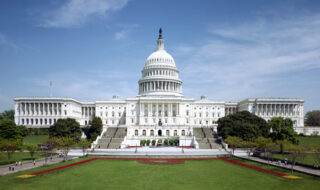NFIB Health Care Policy Paper Urges Lawmakers to Enact Relief for Main Street
NFIB Health Care Policy Paper Urges Lawmakers to Enact Relief for Main Street
May 12, 2025
New NFIB report reveals a growing health insurance affordability crisis for small business owners and employers
FOR IMMEDIATE RELEASE
BARRE, VT (May 12, 2025) – The National Federation of Independent Business (NFIB), Vermont’s leading small business advocacy association, recently released a new health care policy paper entitled, “Addressing the Health Insurance Affordability Crisis for Small Businesses.” The findings reveal a dire prognosis for the small-group insurance market as employer-provided health coverage is becoming unsustainable for millions of small businesses and their employees.
“The cost of providing health coverage to employees has been the number one concern for small business owners for nearly forty years,” said John Reynolds, NFIB Vermont State Director. “Being able to offer health insurance to employees is critical for recruiting and retaining workers, but this benefit is getting further and further out of reach for many small employers. The first step that Vermont lawmakers can take is to stop making the problem worse by adding new mandates and regulations that drive up the cost of coverage.”
Key findings from the report:
- The small-group market is in freefall, with enrollment plummeting from 15 million individuals in 2014 to just 8.5 million in 2023, a 44% drop.
- Average premiums for small businesses have skyrocketed: Average single plan premiums have gone up 120% in the last two decades, while average family plan premiums have increased by 129% for firms with 50 or fewer employees.
- Only 30% of small businesses still offer health insurance, down from nearly 50% in 2000.
- Ninety-eight percent of small businesses say they are concerned about whether they will be able to afford to continue offering health insurance in the next five years.
- Small businesses pay twice as much for health insurance as large businesses, firms with less than $600,000 in revenue spend nearly 12% of payroll on health benefits, compared to 7% for firms with over $2.4 million in revenue.
In Vermont, health insurance prices have increased significantly in the state-regulated markets that serve small businesses and their employees. According to the Kaiser Family Foundation, the average full price individual market “benchmark plan” premium increased by 153% from 2018 to 2025.
In the small group market, the average silver plan employee premium increased approximately 37% from 2018 to 2024. For 2025, the state’s two largest small group insurance carriers were granted average increases of 11% and 23%, respectively.
“Health insurance costs are closely tied to the cost of health care, which has been on the rise in Vermont,” continued Reynolds. “Despite Vermont generally ranking among the healthiest states in the country and having a high rate of health coverage, the same factors that contribute to Vermont’s broader affordability crisis – a lack of workers, dearth of housing, and high taxes – weigh on healthcare delivery. It’s no surprise that small businesses struggle to afford employee coverage.”
NFIB Vermont Healthcare Priorities:
- Affordable Coverage. Let small business owners work with their employees and health carriers to determine what works best for them without saddling individual and small group plans with more mandates and regulations.
- Level The Playing Field. Vermont should level the playing field between big businesses and small businesses by making self-insured plans more accessible to small employers. In Vermont, small employers must pay a 17% premium to offer the same coverage as larger employers. Vermont small businesses with < 25 employees pay minimum costs that are 40% higher than what is required in Maine and 100% higher than New Hampshire.
- Increase Options. Explore new ways to help small employers off coverage, including: incentives for Individual Coverage Health Reimbursement Arrangements (ICHRA), evaluate the benefits of reference-based pricing (S.55, Sen. Hardy), and remvoing barriers to forming Multiple Employer Welfare Arrangements (MEWAs) and Association Health Plans (AHP) to allow small employers to gain the same purchasing power as larger competitors.
>>>> View “Addressing the Health Insurance Affordability Crisis for Small Businesses” here.
###
For over 80 years, NFIB has been advocating on behalf of America’s small and independent business owners, both in Washington, D.C., and in all 50 state capitals. NFIB is nonprofit, nonpartisan, and member-driven. Since our founding in 1943, NFIB has been exclusively dedicated to small and independent businesses, and remains so today. For more information, please visit nfib.com.
NFIB is a member-driven organization advocating on behalf of small and independent businesses nationwide.
Related Articles














